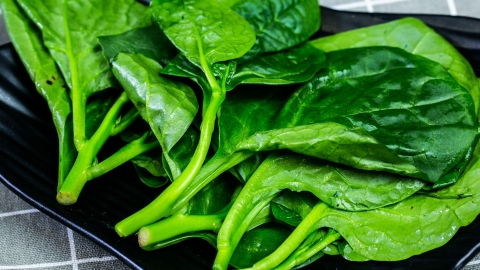Can pregnant women eat Malabar spinach?
Generally speaking, pregnant women can eat Malabar spinach (Basella alba), but only in moderation. Details are as follows:

Malabar spinach is rich in vitamin A, vitamin C, vitamin E, calcium, iron, phosphorus, and other minerals, as well as protein and dietary fiber. These nutrients are important for the health of pregnant women and the growth and development of the fetus. For example, vitamin A helps in the fetal visual development and immune system formation, vitamin C promotes iron absorption and helps prevent anemia during pregnancy, while calcium and iron are essential elements for fetal bone and blood formation.
Some pregnant women may have a sensitive gastrointestinal system, and excessive consumption of Malabar spinach may cause gastrointestinal discomfort, such as diarrhea, especially during the first trimester. Therefore, overconsumption should be avoided. If a pregnant woman is allergic to Malabar spinach, it is recommended to avoid consumption to prevent allergic reactions.
During pregnancy, maintaining good eating habits, avoiding raw, cold, or undercooked foods, as well as foods that may cause discomfort, can help ensure the health of both mother and baby.









